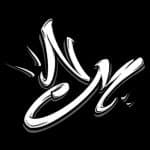Breaking away from the chains of 9-5 is commonplace today. Some eight years ago, it was brave for want of a better word. That’s where Chris Levine’s story takes place. That want and need to break away from routine would become the catalyst into entering the acting profession.
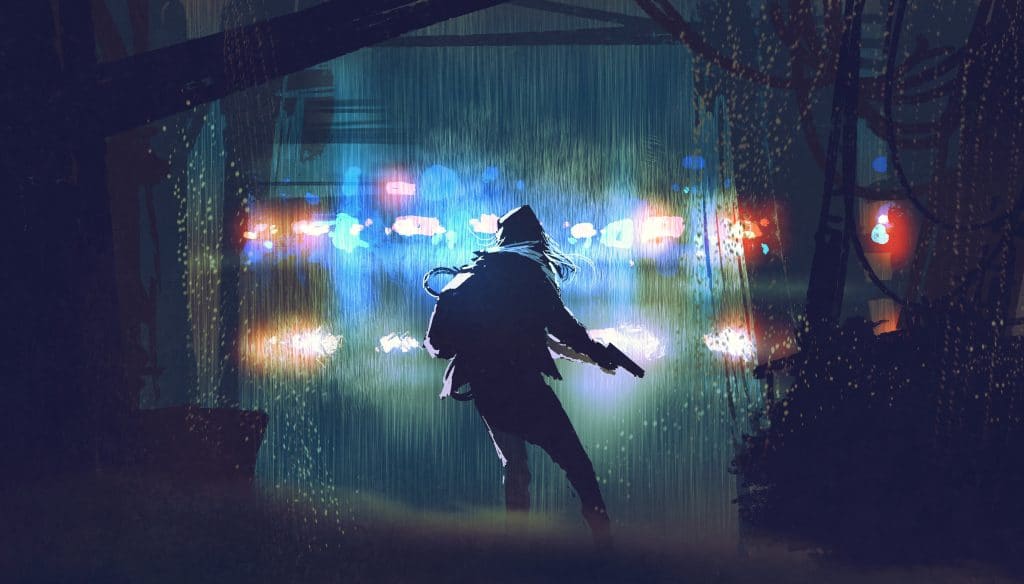
A conversation with Chris Levine, the Hollywood movie producer who has his eyes set on the prize.
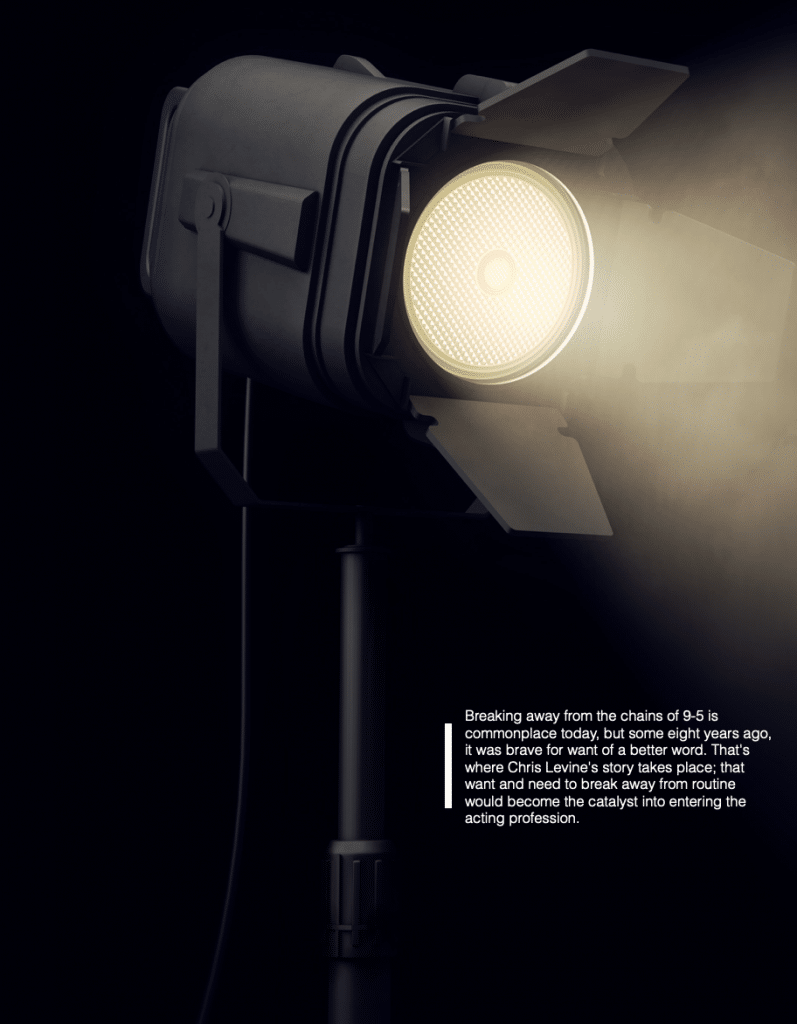
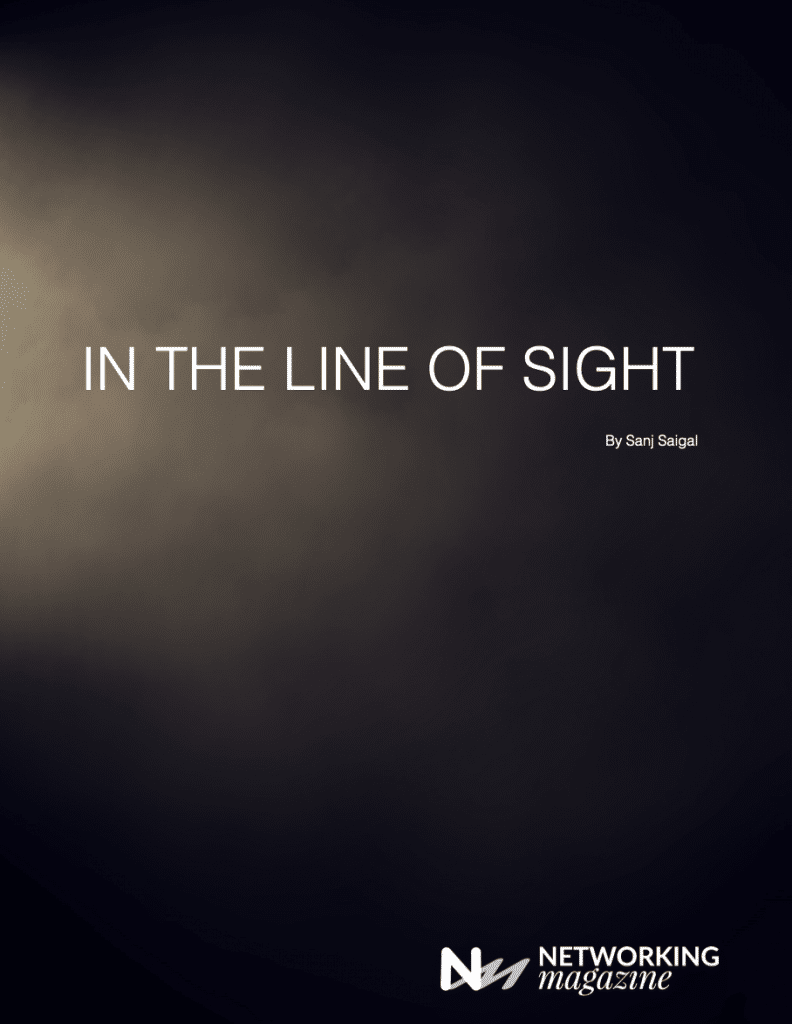
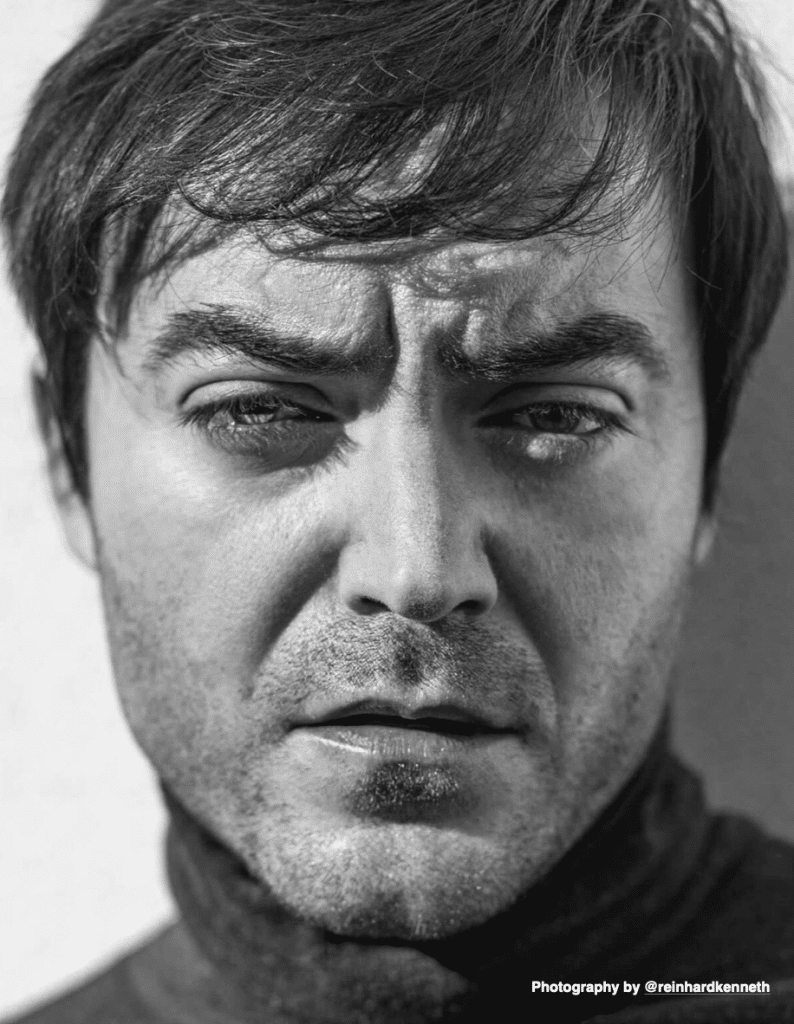
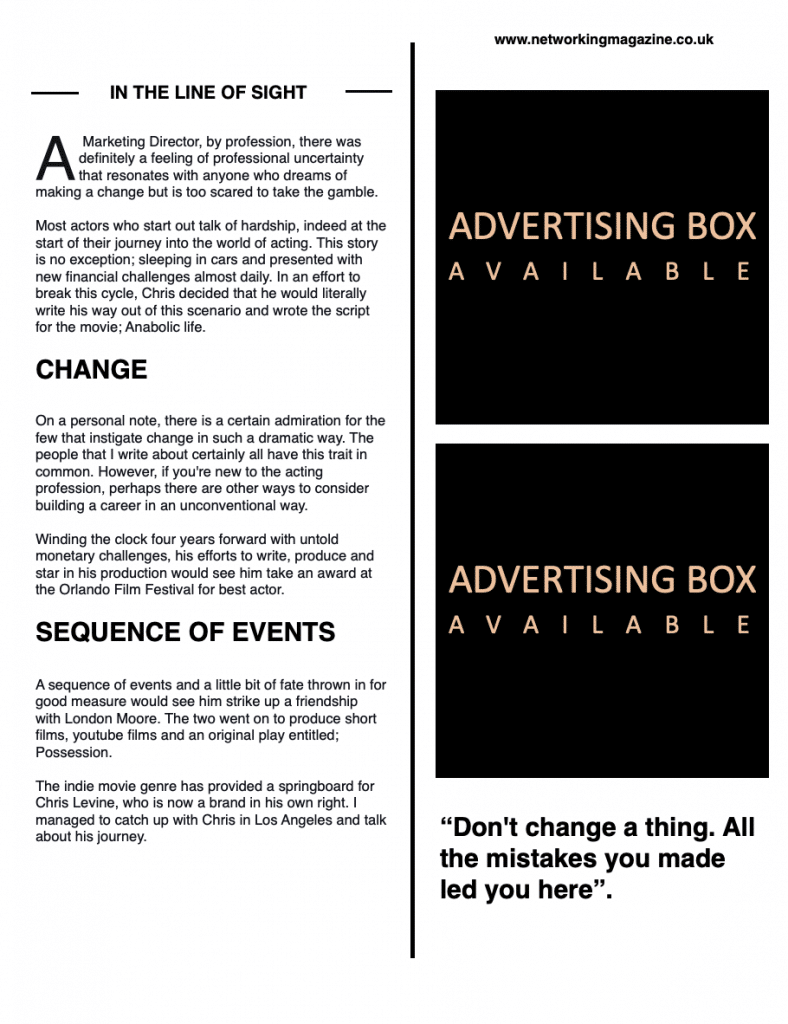
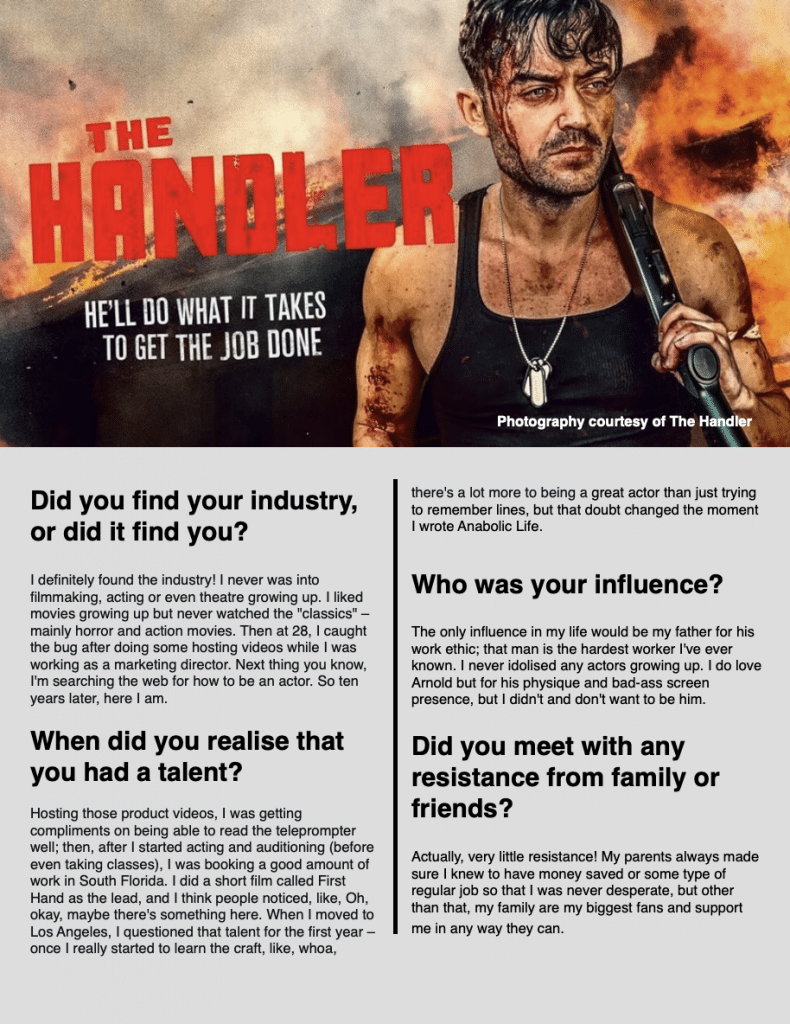
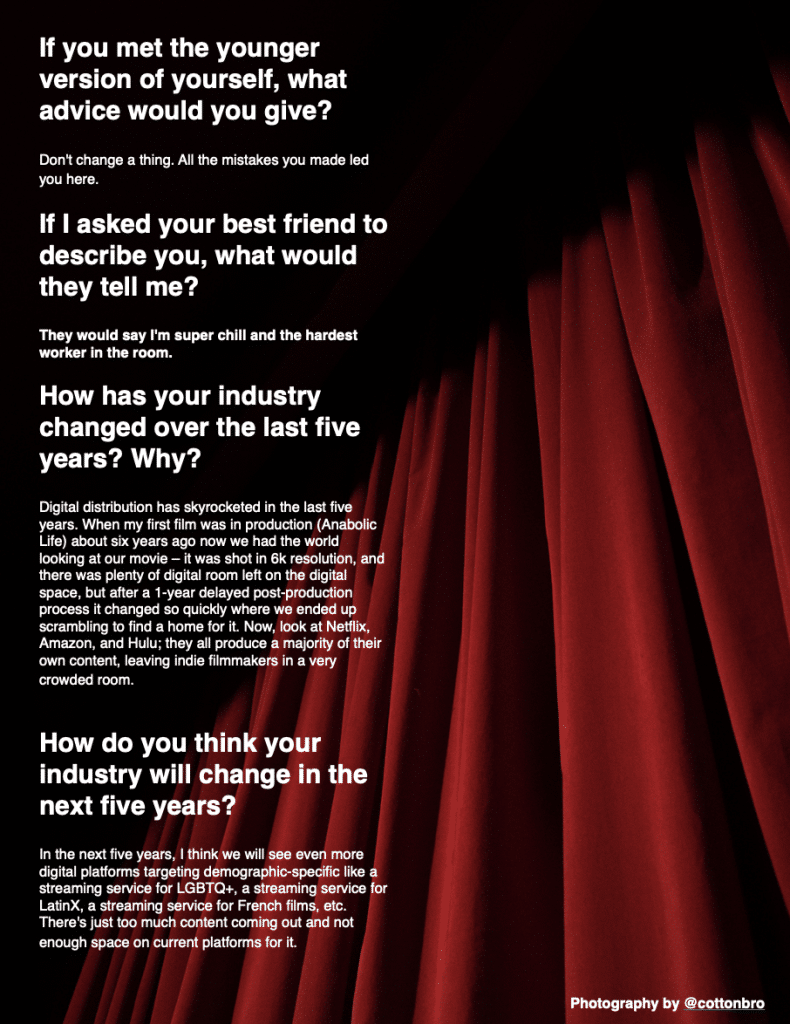
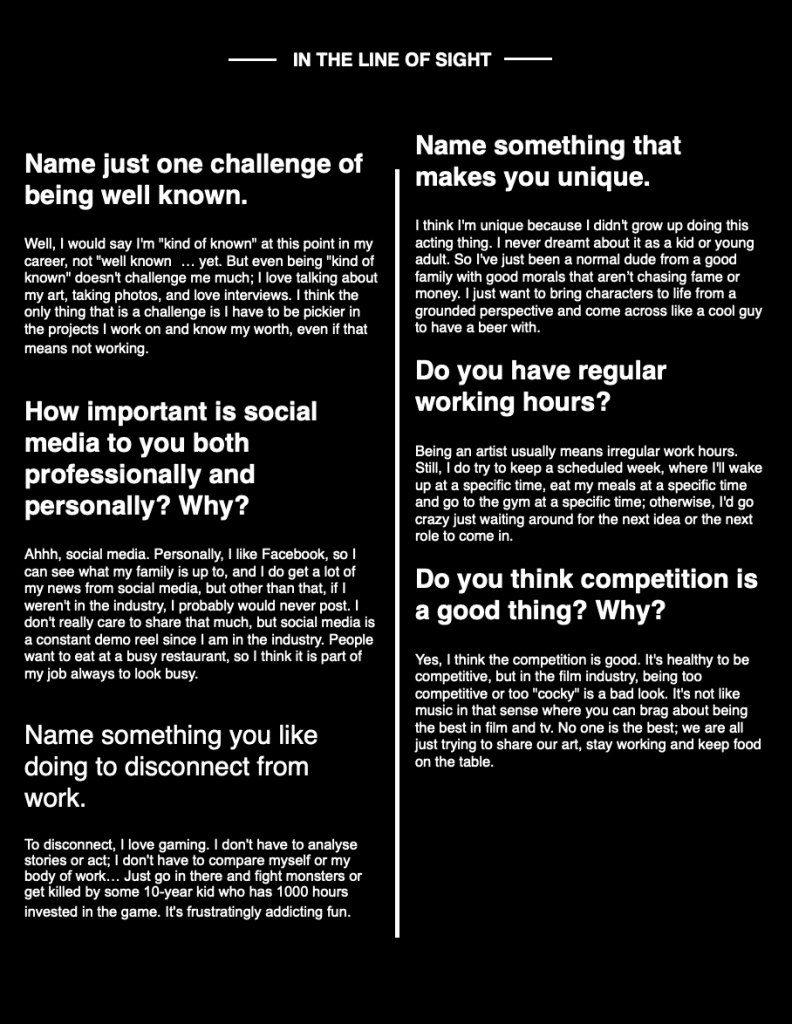
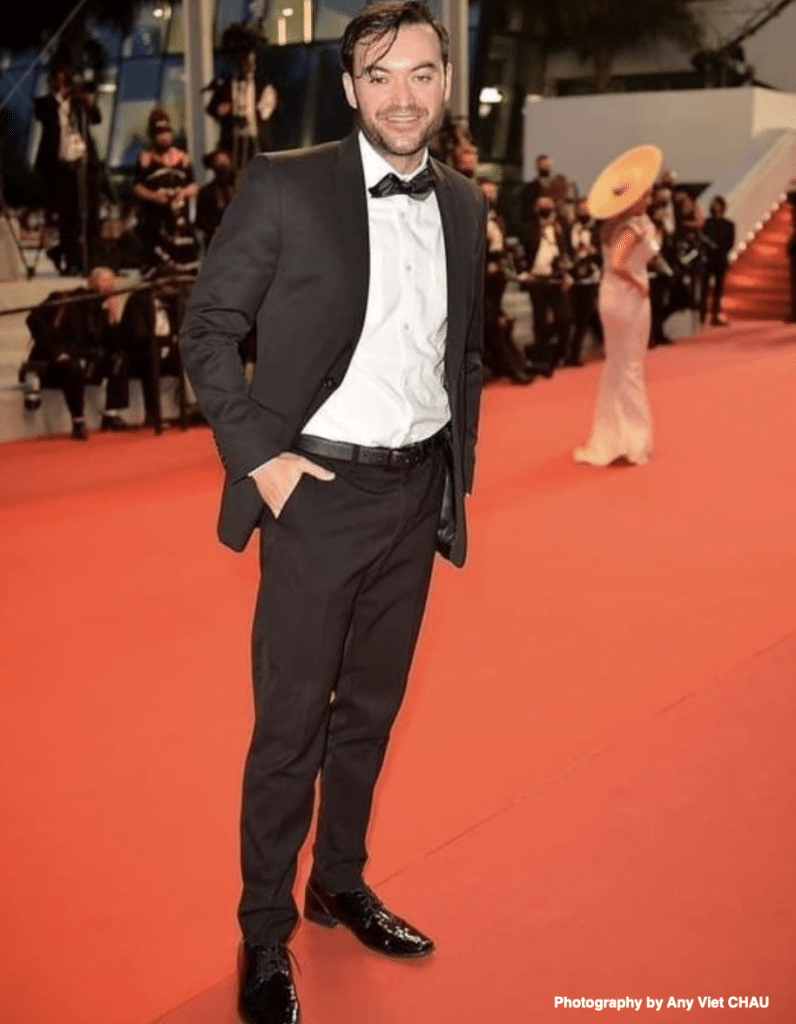
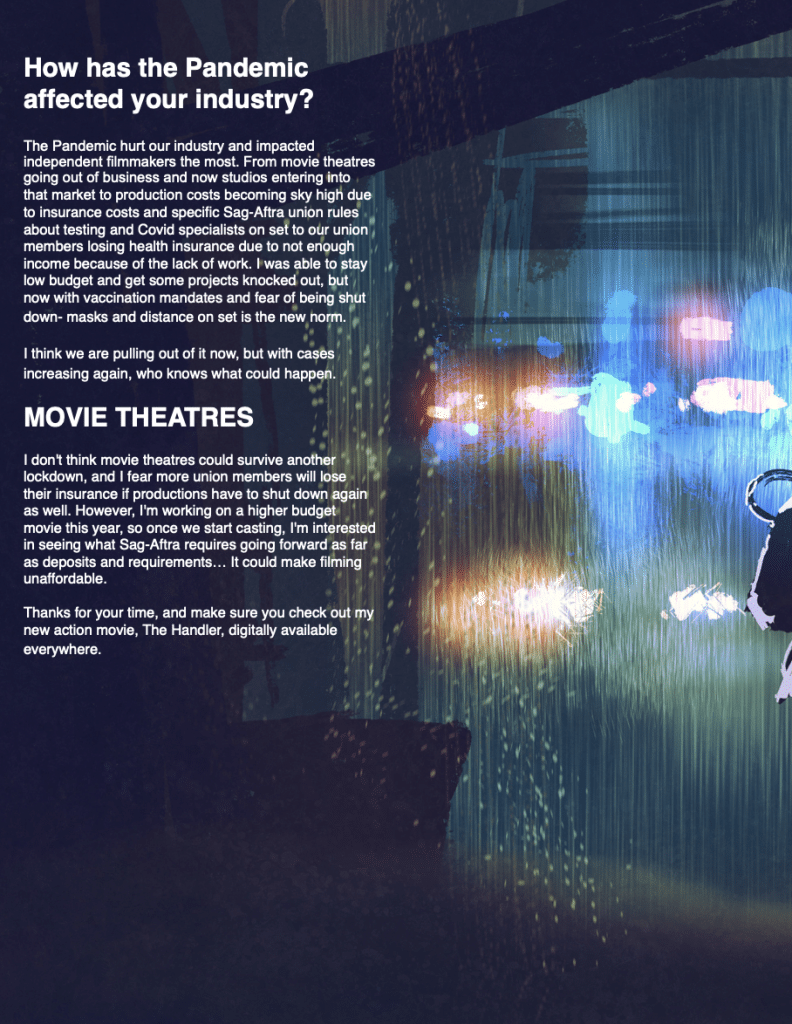
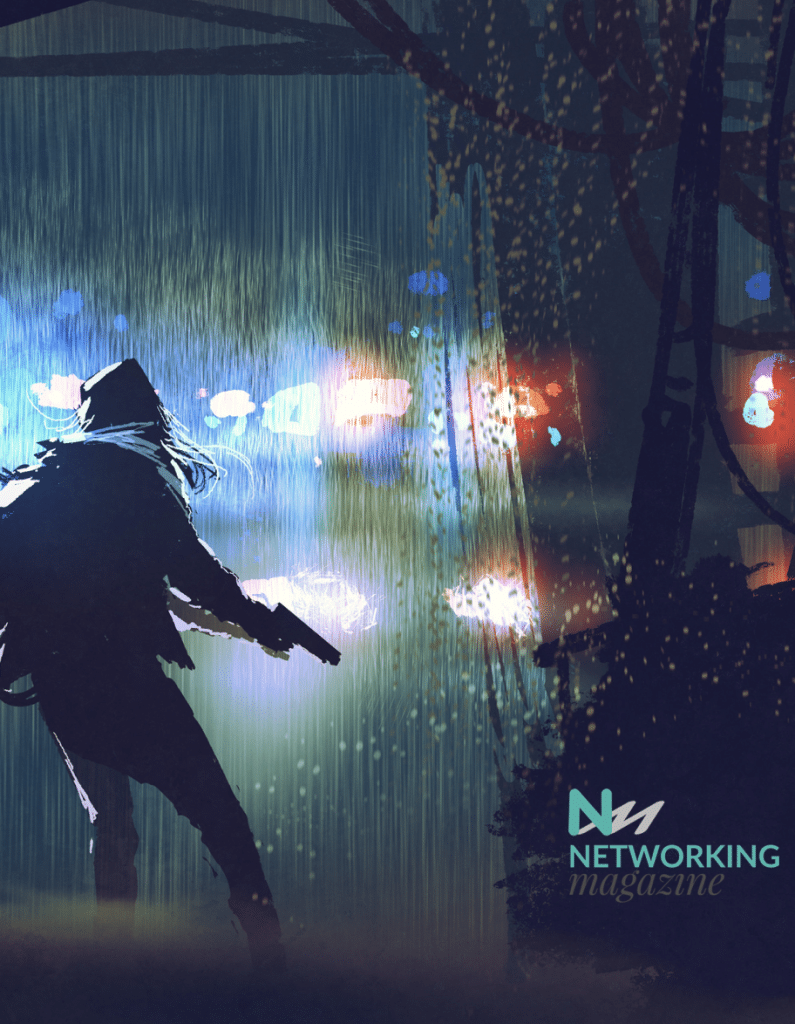
A Marketing Director, by profession, there was definitely a feeling of professional uncertainty. That resonates with anyone who dreams of making a change but is too scared to take the gamble.
Most actors who start out talk of hardship, indeed at the start of their journey into the world of acting. This story is no exception; sleeping in cars and presented with new financial challenges almost daily. In an effort to break this cycle, Chris decided that he would literally write his way out of this scenario and wrote the script for the movie; Anabolic life.
CHANGE
On a personal note, there is a certain admiration for the few that instigate change in such a dramatic way. The people that I write about certainly all have this trait in common. However, if you’re new to the acting profession, perhaps there are other ways to consider building a career in an unconventional way.
Winding the clock four years forward with untold monetary challenges, his efforts to write, produce and star in his production would see him take an award at the Orlando Film Festival for best actor.
SEQUENCE OF EVENTS
A sequence of events and a little bit of fate thrown in for good measure would see him strike up a friendship with London Moore. The two went on to produce short films, youtube films and an original play entitled; Possession.
The indie movie genre has provided a springboard for Chris Levine, who is now a brand in his own right. I managed to catch up with Chris in Los Angeles and talk about his journey.
Chris, did you find your industry, or did it find you?
I definitely found the industry! I never was into filmmaking, acting or even theatre growing up. I liked movies growing up but never watched the “classics” – mainly horror and action movies. Then at 28, I caught the bug after doing some hosting videos while I was working as a marketing director. Next thing you know, I’m searching the web for how to be an actor. So ten years later, here I am.
When did you realise that you had a talent?
Hosting those product videos, I was getting compliments on being able to read the teleprompter well. After I started acting and auditioning (before even taking classes), I was booking a good amount of work in South Florida. I did a short film called First Hand as the lead, and I think people noticed, like, Oh, okay, maybe there’s something here. When I moved to Los Angeles, I questioned that talent for the first year – once I really started to learn the craft, like, whoa, there’s a lot more to being a great actor than just trying to remember lines, but that doubt changed the moment I wrote Anabolic Life.
Who was your influence?
The only influence in my life would be my father for his work ethic; that man is the hardest worker I’ve ever known. I never idolised any actors growing up. I do love Arnold but for his physique and bad-ass screen presence, but I didn’t and don’t want to be him.
Did you meet with any resistance from family or friends?
Actually, very little resistance! My parents always made sure I knew to have money saved or some type of regular job so that I was never desperate, but other than that, my family are my biggest fans and support me in any way they can.
If you met the younger version of yourself, what advice would you give?
Don’t change a thing. All the mistakes you made led you here.
If I asked your best friend to describe you, what would they tell me?
They would say I’m super chill and the hardest worker in the room.
How has your industry changed over the last five years? Why?
Digital distribution has skyrocketed in the last five years. When my first film was in production (Anabolic Life) about six years ago now we had the world looking at our movie – it was shot in 6k resolution, and there was plenty of digital room left on the digital space, but after a 1-year delayed post-production process it changed so quickly where we ended up scrambling to find a home for it. Now, look at Netflix, Amazon, and Hulu; they all produce a majority of their own content, leaving indie filmmakers in a very crowded room.
How do you think your industry will change in the next five years?
In the next five years, I think we will see even more digital platforms targeting demographic-specific like a streaming service for LGBTQ+, a streaming service for LatinX, a streaming service for French films, etc. There’s just too much content coming out and not enough space on current platforms for it.
Name just one challenge of being well known.
Well, I would say I’m “kind of known” at this point in my career, not “well known “… yet. But even being “kind of known” doesn’t challenge me much; I love talking about my art, taking photos, and love interviews. I think the only thing that is a challenge is I have to be pickier in the projects I work on and know my worth, even if that means not working.
How important is social media to you both professionally and personally? Why?
Ahhh, social media. Personally, I like Facebook, so I can see what my family is up to. I do get a lot of my news from social media, but other than that, if I weren’t in the industry, I probably would never post. I don’t really care to share that much, but social media is a constant demo reel since I am in the industry. People want to eat at a busy restaurant, so I think it is part of my job always to look busy.
Name something you like doing to disconnect from work.
To disconnect, I love gaming. I don’t have to analyse stories or act; I don’t have to compare myself or my body of work… Just go in there and fight monsters or get killed by some 10-year kid who has 1000 hours invested in the game. It’s frustratingly addicting fun.
Name something that makes you unique.
I think I’m unique because I didn’t grow up doing this acting thing. I never dreamt about it as a kid or young adult. So I’ve just been a normal dude from a good family with good morals that aren’t chasing fame or money. I just want to bring characters to life from a grounded perspective and come across like a cool guy to have a beer with.
Do you have regular working hours?
Being an artist usually means irregular work hours. Still, I do try to keep a scheduled week, where I’ll wake up at a specific time, eat my meals at a specific time and go to the gym at a specific time. I’d go crazy just waiting around for the next idea or the next role to come in.
Do you think competition is a good thing? Why?
Yes, I think the competition is good. It’s healthy to be competitive, but in the film industry, being too competitive or too “cocky” is a bad look. It’s not like music in that sense where you can brag about being the best in film and tv. No one is the best; we are all just trying to share our art, stay working and keep food on the table.
“Don’t change a thing. All the mistakes you made led you here”.
– Chris Levine
Chris, how has the Pandemic affected your industry?
The Pandemic hurt our industry and impacted independent filmmakers the most. From movie theatres going out of business and now studios entering into that market to production costs becoming sky high due to insurance costs and specific Sag-Aftra union rules about testing and Covid specialists on set. Union members losing health insurance due to not enough income was also a consideration because of the lack of work. I was able to stay low budget and get some projects knocked out. However, now with vaccination mandates and fear of being shut down- masks and distance on set are the new norm.
I think we are pulling out of it now, but with cases increasing again, who knows what could happen.
MOVIE THEATRES
Movie theatres couldn’t survive another lockdown, and I fear more union members will lose their insurance if productions have to shut down again as well. However, I’m working on a higher budget movie this year, so once we start casting, I’m interested in seeing what Sag-Aftra requires going forward. As far as deposits and requirements… It could make filming unaffordable.
Thanks for your time, and make sure you check out my new action movie, The Handler, digitally available everywhere.
Anabolic Life Trailer
Contact




